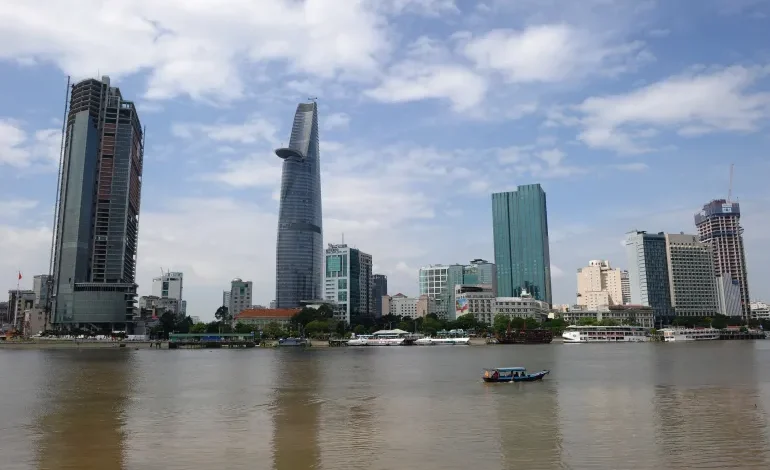Bye Singapore, hello Malaysia: Expats chase cheaper living costs

For marketing professional Benedikt Becker, living and working in Singapore had always been “the dream”.
Becker, who landed a job with a marketing agency in Singapore in 2020, thrived on the city-state’s vibrancy as a business hub and enjoyed its efficiency, “impressive” skyline, verdant greenery and architecture. For 2,800 Singapore dollars ($2,072) a month, the German national rented a boutique one-bedroom condo apartment in the east of Singapore, which allowed him to take daily morning walks to the beach.But as the cost of living became increasingly high, Becker began to reconsider his situation. He noticed that his Grab rides to the office cost 22 to 25 Singapore dollars ($16 to $18), up from 12 to 14 Singapore dollars ($9 to $10) when he first arrived. Friends began reporting that their landlord was bumping up their rent by 20-30 percent.
Singapore’s prime residential market saw rents rise by more than 26 percent in 2022, according to the global real-estate company Savills, more than double the rate of growth in London, Sydney and New York.
In January, the city-state’s government raised the Goods and Services Tax (GST) by 1 percentage point to 8 percent, ahead of a planned hike to 9 percent next year.
Last year, Becker, 33, decided to move to Malaysia’s capital Kuala Lumpur, taking a pay cut to work remotely for a German tech start-up aiming to expand to Southeast Asia.
He now rents a room in a co-living space under a flexible rental agreement for 800 Singapore dollars ($592) a month, orders GrabFood for most meals for about 30 Malaysian ringgit ($6.55) and works from various co-working spaces.
“There’s the saying: If you don’t like the rules, you have to change the game… so my move from Singapore to Malaysia was my way of changing the game to keep the cost of living expenses low,” Becker told Al Jazeera.
For now, Becker’s priority, apart from saving money, is to experience other Asian cities such as Bangkok or Ho Chi Minh.Becker is among a group of expats who have left Singapore for cheaper Southeast Asian cities, propelled by a sharp rise in rents and living costs as the economy bounces back from the COVID-19 pandemic.
While there is no official data on the number of foreign workers leaving Singapore, multinational firms are increasingly looking to move staff out of the city to cut costs, according to recruitment agencies.
There has been a “strong appetite” to relocate staff from Singapore to neighbouring Malaysia due to its location, English-speaking population, lower cost of living and strong presence of back-end office functions, Nic Chambers, the managing director of Michael Page Malaysia, told Al Jazeera.
“Singapore still has a really important role to play. CFOs and CEOS of listed companies will still want to remain in Singapore because of its proximity to investors, private equity firms and venture capital firms. However, I fully expect over time, we will start to see even some of those C suite roles moving into Malaysia,” Chambers said, adding that he has also seen a rise in talent requesting salary packages in US dollars to mitigate fluctuations in the value of the ringgit.
American software engineer Will Fong had also begun to feel the pinch of rising rents in Singapore.
Fong had been renting a one-bedroom condo in Jurong East in western Singapore for 2,600 Singapore dollars ($1,924) when his landlord proposed hiking the rent to 3,500 Singapore dollars ($2,591). With the help of his agent, he was able to negotiate the rent down to 3,000 Singapore dollars ($2,220).
“I’ve heard how crazy things are getting… It would be way too expensive if I agreed to that rental rate,” Fong, 41, told Al Jazeera.
Fong decided to start working remotely in Vietnam, travelling first to Ho Chi Minh City for two weeks and then Da Nang for a month. In the long term, Fong plans to rent a room in Singapore to use as a base for travelling and working remotely around Southeast Asia.
“I can have both places and it’ll still be cheaper than me going out and eating out in Singapore,” Fong, who is a Singaporean permanent resident, said.
“I’m quite low-key… I just need a place to sit and drink my beer, do my work from anywhere and it’s much more relaxing. Right now I’m still playing outside of Singapore for a little while… It’s like I’m going camping,” he said.While expats have been leaving Singapore due to the high rental and living costs, this is being “offset by large numbers of expats from other regions and a shift to C-suite expats taking advantage of the new Overseas Networks & Expertise (ONE) Pass” – a visa that allows eligible talent to work for multiple companies at once – according to recruitment firm TENTEN Partners.
Operating out of London, Singapore, Hong Kong and opening soon in Dubai, TENTEN Partners’s clients range from mid- to senior-level employees in financial services, fintech and consultancies.










